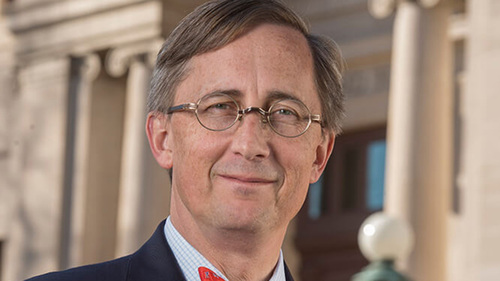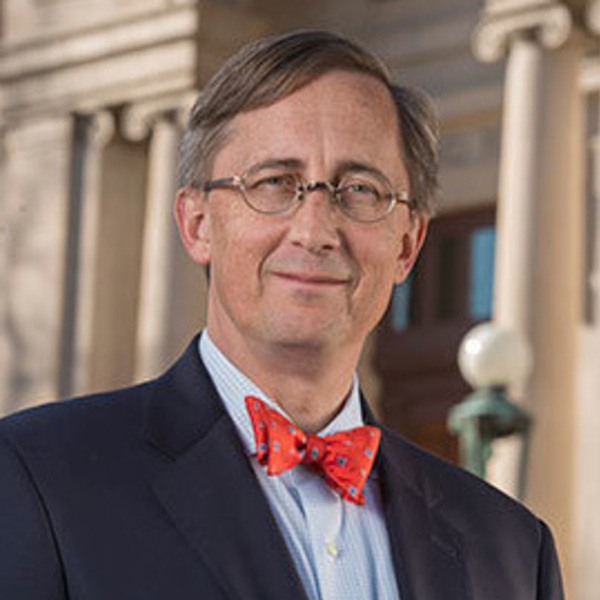
University of Notre Dame Professor of Architecture Duncan Stroik has been named an administrator for the Texas Historical Foundation’s Michael C. Duda Historic Architecture Endowment, which supports efforts to preserve and celebrate Texas’ buildings, bridges, monuments and other landscapes as well as the people who created them.
Stroik is an expert in sacred architecture and classical tradition and the 2016 winner of the Arthur Ross Award for Architecture.
“Michael Duda received a passion for building and business from his father and brought his education in classical architecture together with his love of development,” Stroik said. “The result was a serious involvement in saving and restoring the historic architecture of Texas, and his family has furthered that commitment with generous funds that allow the Texas Historic Foundation to support preservationists in their crucial work to conserve the riches of our architectural patrimony. I am honored to be part of that process.”
Duda, a native-born Texan, was the son of Notre Dame Trustee Fritz L. Duda and a 2005 graduate of the School of Architecture. He died unexpectedly in 2019 at the age of 38.
After graduating from Notre Dame, Duda spent several years practicing architecture in California before returning to his beloved Texas, where he joined his family’s real estate company and later started his own Briar Cove Development Co. in 2018. His love of architecture and Texas history were rewarded with his appointment to the board of the Texas Historical Foundation in 2011.
According to “Texas Heritage,” the foundation’s publication, two projects have already received funding from the endowment. The first grant assisted Bartlett Activities Center near Austin with masonry repairs to the brick walls of the 1909 Bartlett Grammar School, which will also have a history museum on its ground floor. The second enabled Twin Sisters Dance Hall in Blanco, originally built in 1879, to receive repairs to its ceiling and structure.
